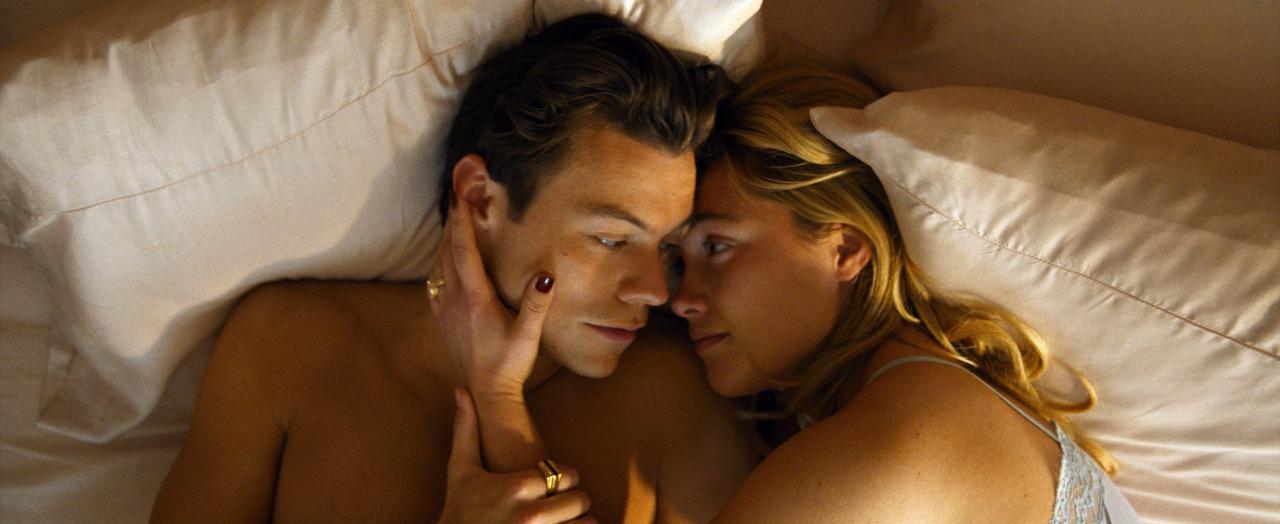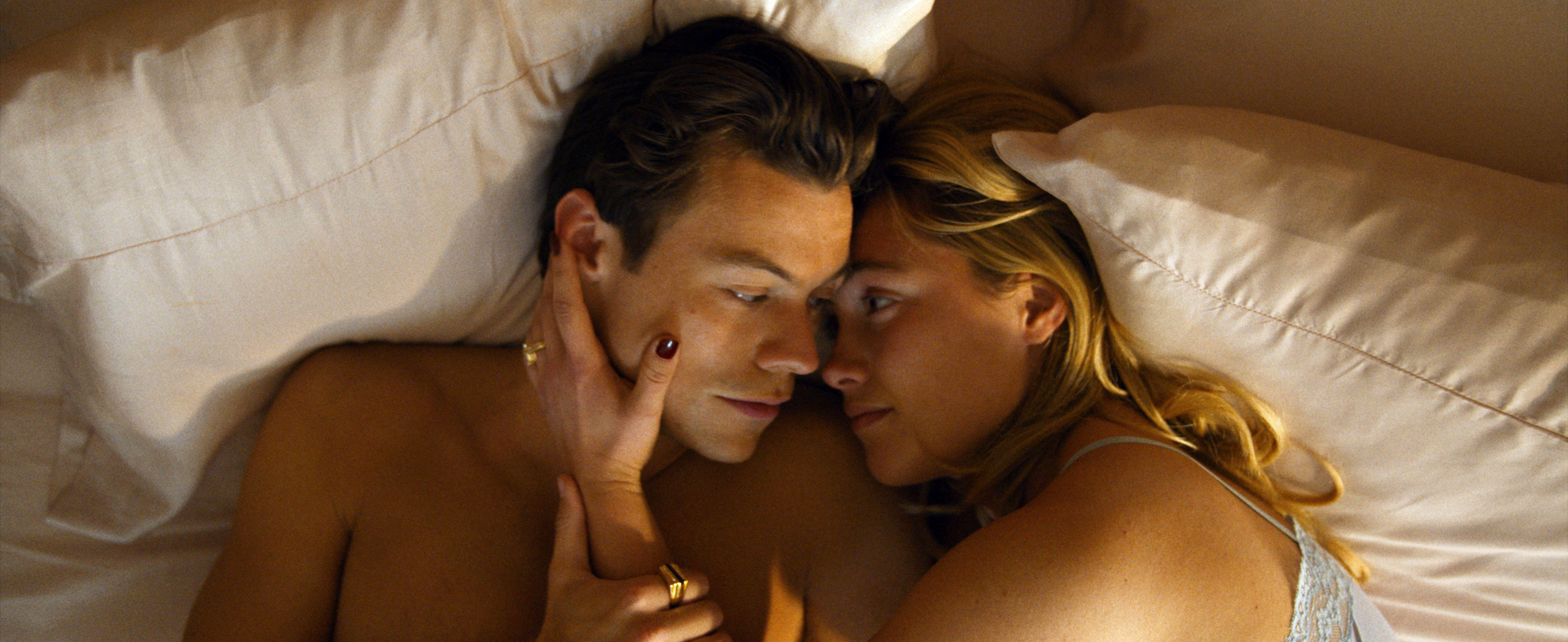Don’t Worry Darling, the highly anticipated psychological thriller directed by Olivia Wilde, has arrived in cinemas after months of online gossip and speculation about its production. The controversies include: an alleged affair between the director and main actor, Harry Styles, who also happens to be one of the most famous pop stars on Earth; the firing – no, sorry, ‘replacing’ – of the originally cast main character (Shia LaBeouf was switched for Styles); a reported fall-out between lead actress Florence Pugh and Wilde, which led to Pugh not doing any publicity for the film; and a bizarre TikTok theory that Kiki Layne and Ari’el Stachel were hired to meet the Oscars new diversity requirements only to have most of their scenes end up on the cutting room floor.
This was all brilliant publicity, obviously – so much so that one wonders if Wilde set out to make a movie for the internet age from the get-go. The cinema I watched it in was full, mostly with young women and girls desperate to see former One Direction star Styles on screen. But the critics were not wrong. Styles’s acting is painful to watch – more Hollyoaks than Hollywood – particularly in the later scenes where it feels as if the film is giving up on itself.
The setting is California in the 1950s and the cinematography is dreamy. The costumes are exquisite. The colour palette is awash with soft Instagram hues; the ASMR of the housewives chopping, stirring and scrubbing their way through the day is ready to be shared on TikTok.
It’s a bit like The Truman Show and a lot like Stepford Wives but nowhere near as good as either
The suburban homes are filled with rich teak mid-century furniture and each housewife is glossier and more glamorous than the next. The whole film is drenched in a golden syrupy Californian sunlight. But one only tends to notice such fine things when the film is fairly rubbish. Which Don’t Worry Darling is. The plot is riddled with holes and lacks a clear, coherent storyline. It’s a bit like The Truman Show and a lot like Stepford Wives but nowhere near as good as either.
The story hits on that most web-friendly of themes: gender roles. The men characters go out to work for a mysterious company called the Victory Project, which is headed by Frank (Chris Pine), a shady CEO based on Jordan Peterson – who is, according to Wilde, a ‘pseudo-intellectual hero to the incel [involuntarily celibate] community’.
The Victory Project seeks to change the world – by doing what, we don’t know – and the women stay at home cleaning, cooking, drinking martinis and shopping in a mall, where everything is automatically charged to their husband’s account.
I couldn’t help wishing that was my life. Imagine – no emails to respond to, no spreadsheets to despair over, just Bardot bouffants and martinis by the pool all day long. The sun would shine and the only problem I’d have all day would be deciding what to make for dinner. The teenage girl sitting next to me muttered about how disgusting it was, which I put down to the fact she was too young to have experienced the workforce.
You’ll be amazed to learn, though, that all is not well in this apparently perfect society. Creepy humming and way too many mirrors indicate that everything isn’t quite as beautiful and rosy as it seems. One of the wives in this utopia, Alice (Pugh), begins to question everything she knows. I shan’t say any more or I’ll give away what little plot there is.
So let’s get back to Styles, since he is mostly what people care about. His character is the 1950s personified. He expects his wife to wave him off to work in cocktail attire and meet him at the door with a drink in hand. The kitchen is so alien to him that on the one occasion he tries to cook, the silly sally mashes up raw potatoes with a whiskey bottle. Thank God he has a wife to do this for him!
Wilde (who both stars in and directs the film) has spoken a lot about feminism on the many press junkets, but the story feels empty. What’s meant to be an edgy cautionary tale of what it’s actually like to be a devoted housewife feels strangely out of date. In this age of social-media savvy tradwives, don’t some women really want to return to gender norms of old and idealise domestic life?
Pugh does stand out, however. She is sublime in her role. One can slightly see why she refused to participate in the press tour, having carried the whole film. Still, what better advertisement for feminism? You get paid hundreds of thousands of pounds and don’t have to do the work you can’t be bothered with.







Comments